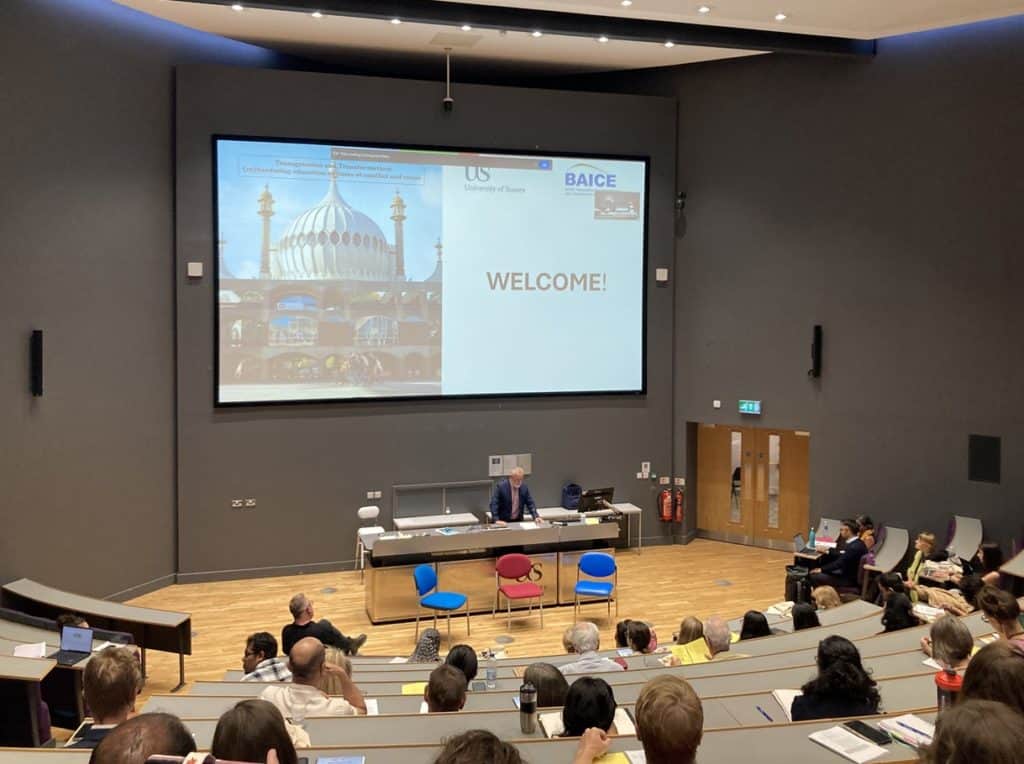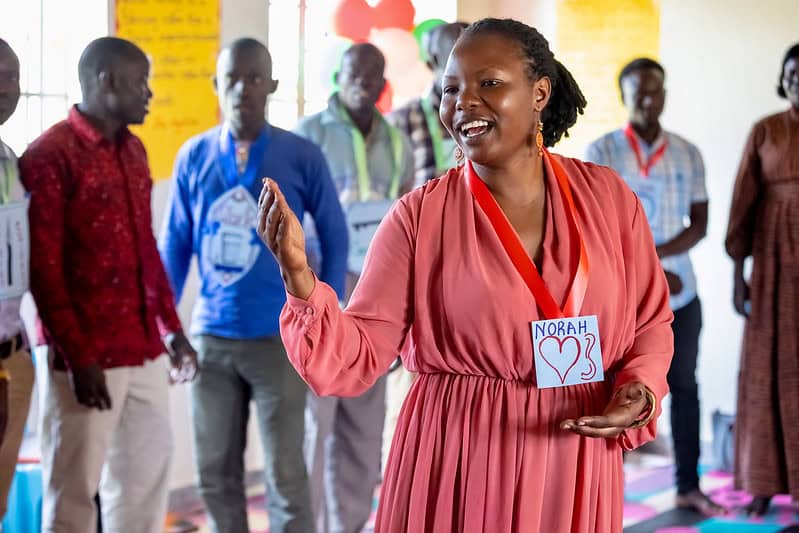Representatives from Schools2030 recently attended the British Association for International & Comparative Education (BAICE) Conference at Sussex University, having been accepted to convene a symposium alongside Schools2030 partners. The theme of the conference centred on ‘Transgression and transformation: (re)bordering education in times of conflict & crises’, and featured a powerful opening prompting reflection on what transformative education might look like, particularly in settings where marginalisation has become entrenched due to conflict and other crises. This set the scene for opening questions asking what pedagogy might look like to challenge such power imbalances, and how we might expand or re-articulate narrow concepts of learning which perpetuate injustice.

The rich presentations and discussions over the course of the three-day conference went some way in trying to address these big questions. These included sessions exploring how we might bridge the gaps between literacy practices in the home, community and school, but also between the lived realities of teachers and students when it comes to negotiating high stakes examinations and the impact of policy changes. We were invited to revisit the notion of expertise and social justice, hearing that in Africa a one-size-fits-all teacher professional development (PD) approach is prevalent, with peer forms of teacher PD, such as action research and professional learning communities, rarely being recognised at the system level.
We heard about efforts to improve data systems by working in partnership with government, particularly on improving data reporting on disability prevalence in schools, as well as through integrating climate-related questions to the school census to support systems to better prepare for climate-related disruption to learning. One session that piqued interest centred on exploring teacher agency as a disruptor in education systems. In this session we heard how researchers in India had looked at understanding teacher’s professional identity using an ecological model of agency to explore the interaction of teacher beliefs with their context and resources – something Schools2030’s newest cohort of researchers will also be embarking on in teacher agency projects across five countries.
These contributions linked well with our symposium, which sought to tie together the experience and knowledge of the Schools2030 implementation team in Uganda with work led by Schools2030 Global Research Partners. The session explored the intersection of our focus on holistic skills, learner-centred pedagogy and teacher development in Uganda, and how this is seeking to advance inclusive education.
It is estimated that 2.5 million children have a disability that hinders their access to education in Uganda, and it is the African country hosting the largest refugee population. Against this backdrop, the presentations spoke to the way Schools2030 is supporting innovative teachers and educators at schools and CSOs to use Human-Centred Design (HCD) to improve the holistic learning of their students, where HCD is proposed as a radical reimagining of the traditionally dominant transmission model of teacher professional development.

Whilst HCD may challenge status quo methods in pedagogy and in teacher development, Open Development & Education shared how their research with Schools2030 in Uganda went deeper to co-create further teacher PD materials to be integrated with the HCD process that will enhance teachers’ understanding of disability and their ability to support learners with disability in the classroom. Working in partnership with eKitabu, their teacher toolkit on Holistic learning for learners with additional needs has been produced in eBraille and ePub versions to ensure teachers with visual impairments can also access the materials.
Complementing this, Sightsavers spoke about work they have led in Uganda with the Ministry of Education and Sports to co-develop a teacher CPD package for inclusive education. This is now owned by the national government and implemented through the Uganda National Institute for Teacher Education and Primary Teaching Colleges. Bringing together our three organisations and the complementary activities we are leading in a context where NGO-led disability initiatives are prevalent was a good opportunity to discuss and reflect on our ways of working together as implementers and researchers with the common goal of improving the mainstream education system to benefit all learners. We are grateful to all who attended and contributed to our session.
Finally, the conference closed with the BAICE Presidential address which highlighted another “border” in the field of education research – that between those who research “what works” in education, mostly using quantitative methods to measure learning outcomes and cost-effectiveness, and those who research “what connects” through qualitative methods, with greater concern for diversity and decolonisation discourse. Whilst this dichotomy in its simplest form can be somewhat reductive, it raises interest for Schools2030 as a coalition that negotiates partnerships with and relations between donors, implementers and researchers, amongst others, to lead a contextualised, human-centred programme with ambitions for scaling impact across programme countries and beyond. Overall, this was a valuable and enjoyable experience for Schools2030 to learn from and engage with leading scholars in the field of comparative and international education.
Find out more about the Schools2030 research projects.
Download the Teacher Toolkit for Ugandan primary students with SEND in Braille (.brf) and for EReaders (.epub)
